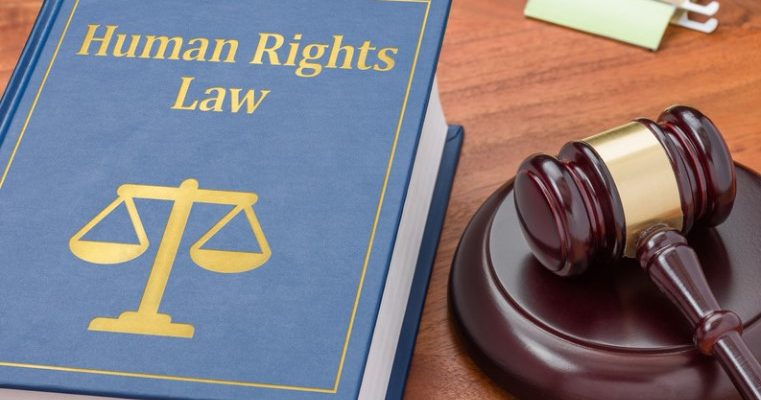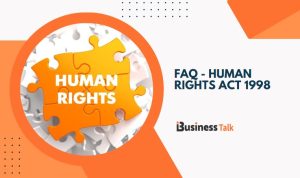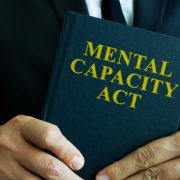
Human Rights Act 1998 – Know about the Rights to Live in the UK
With time, human rights have become a part of life. Everyone is aware of them to an extent. But do you know your rights under the human rights act 1998?
The human rights act 1998, often referred to as the ‘right to life’ act, is a piece of legislation that lists certain rights we have as human beings in a liberal democracy. It is a typical example of a bill of rights in which the government has recognised certain rights and freedoms guaranteed to every individual by law.
It was enacted on 3 January 1998 and has been amended several times. It’s a long document, with around 40 articles covering your rights. Some of these rights are the right to life, the right to freedom of expression, the right against discrimination, the right to education etc.
The act covers areas such as education, health care, goods and services and business establishments, to name a few. It also deals with human rights in prisons and places of detention. In this blog, we will discuss some important human rights act articles that everyone should understand.
Human Rights Act 1998

The Human Rights Act 1998 is an act of parliament in the UK that lays out the human rights of all its citizens. It is based on the European Convention on Human Rights. It sets out the rights to life, liberty, security of person, freedom of expression, and freedom from disability discrimination and others outlined in that convention. Furthermore, the act explicitly makes those rights a part of UK law by providing a legal framework for their protection.
Under the act, individuals can defend their rights in UK courts. It also compels public and private limited companies to treat everyone equally, with fairness, dignity, and respect. This act is an important piece of legislation as it is one of the first times human rights have been protected under statute law in the UK. It has helped to create a fair and equal society where human rights are respected.
The act was given royal assent in 1998 by Queen Elizabeth II. It sets out the rights of all individuals in the country and is based on the European convention on human rights (ECHR). This convention was established to protect human rights worldwide and is a cornerstone of international law. The act explicitly recognises these rights as part of UK law.
Article 1 Human Rights Act
Every newborn is born free and with the same dignity and rights as everyone else. Therefore, they should behave toward one another in a spirit of brotherhood, endowed with reason and conscience.
Human Rights Act Article 2
Without discrimination based on race discrimination, colour, sex, language, religion, political or other beliefs, national or social origin, property wealth, birth or another status, everyone has a right to all the rights and freedoms outlined in this Declaration.
Human Rights Act Article 3

Article 3 of the human rights acts states that everyone has the right to life, liberty and security. The act guarantees a person’s right to life, liberty, and security, a fair trial, freedom of expression, and protection from torture and other ill-treatment. It also mandates that all public bodies in the UK comply with human rights standards.
The act also makes the “Convention Rights” part of UK law, allowing people to pursue cases in court if their rights are violated. Overall, the act is a crucial human rights legislation that promotes and protects the rights of all individuals living in the UK.
Human Rights Act Article 5
Torture, cruel, inhumane, humiliating treatment, or punishment is prohibited. The Human Rights Act of 1998 was a landmark piece of legislation that significantly enhanced the rights of citizens in the United Kingdom. The act guaranteed a range of rights, including freedom of expression and freedom from discrimination based on gender, race, religion, or disability.
However, the act also protected against human rights abuses committed by public officials. Before the act was implemented, citizens had to take their cases to the European Court of Human Rights. Under Article 5 of the Human Rights Act 1998, everyone has a right to liberty and security, which includes not being deprived of liberty except in certain circumstances.
The act has helped to promote human rights throughout the country and is still a vital part of our legal system today.
Human Rights Act Article 6
The rule of law and democracy are both secured by Article 6 of the Human Rights Act, which protects our right to a fair trial. In a reasonable amount of time, an impartial and independent judge must publicly hear court cases.
Human Rights Act Article 8
Private and family life, home, and correspondence are all entitled to privacy and protection. The human rights act 1998 is a vital piece of law that guarantees protection for all citizens in the UK. It ensures that individuals can live their lives without fear of interference from public authorities.
Human Rights Act Article 9
Article 9 of the human rights act 1998 guarantees that individuals will not be unlawfully arrested, detained, or exiled. This protection is necessary to ensure that people are not mistreated while in custody and to protect their right to a fair trial.
Human Rights Act Article 10

Everyone has the freedom to express themselves. This right shall encompass the freedom to think, receive and transmit information and ideas without interference by public authority and across borders.
The act was given royal assent in 1998 by Queen Elizabeth II, who stated: “I am proud to sign this bill into law, which will create a human rights culture and promote the values of human rights globally.”
Article 11 Human Rights Act
The right to assemble peacefully and connect with others, including the ability to create and join trade unions for one’s well-being, is a basic human right.
Article 12 Human Rights Act
According to national laws governing this right, men and women of marriageable age have the right to marry and start a family.
Human Rights Act Article 14
In connection with your human rights under the Human Rights Act, Article 14 protects your right not to be discriminated against. Because of who you are, your human rights mustn’t be guaranteed differently.
Human Rights Act 1998 Health and Social Care
This legislation protects patients, caregivers, and the most vulnerable in our society. You can influence the choices made about your care if you are aware of your rights. According to this definition, those who provide care services should also respect these rights.
Human Rights Act 1998 in Schools

Education shall be available to all. The state shall respect the right of parents to ensure such education and teaching by their own religious and philosophical beliefs while performing any functions that it assumes in connection with education and teaching.
Human Rights Act Right to Life
The Human Rights Act 1998 protects the right to life as stated in Article 2 of the act. This right is one of the absolute rights protected in the act. Furthermore, the right to life is one of the “Convention rights” listed in Schedule 1 of the act. Article 1 of the Thirteenth Protocol of the Human Rights Act also states that the death penalty is abolished.
Article 3 of the ECHR also states that no one shall be subjected to torture or cruel, inhuman, or degrading treatment or punishment. With all these rights in place, it can be seen how vital it is to uphold human dignity and rights at all costs.
Human Rights Act Freedom of Speech
Our freedom of speech is a basic component of our democracy, as stated in Article 10 of the Human Rights Act. As a result, we are free to express our thoughts and ideas without the government interfering.
Conclusion
Human rights act 1998 is a law that ensures the human rights of all people in the UK. It aims to ensure fair treatment and protection of all human rights, regardless of race, gender, language, or religion. The act covers various issues, including education, housing, employment rights, and freedom from discrimination.
Further, it protects human rights generally and includes human rights bodies to monitor the act’s implementation. It also requires public authorities to produce human rights plans to show how they plan to protect the human rights of their citizens.
FAQ – Human Rights Act 1998

What are the main points of the Human Rights Act 1998?
The Human Rights Act 1998 is a law in the UK that grants certain rights to all citizens, based on the European Convention on Human Rights. The rights protected by the act include protecting individuals from workplace discrimination, the right to a fair trial and the right to be free from torture.
Additionally, the act states that the authorities must protect these rights and ensure that all people are treated equally. The human rights act is based on the European human rights convention and sets out ‘Convention Rights’ to make them explicit in UK law.
These rights include the right to life, freedom of thought, conscience and religion, freedom of expression, equality before the law, peaceful assembly and association, and rights to family life, a home and an effective remedy if these rights are violated.
What rights are protected by the Human Rights Act 1998?
The Human Rights Act 1998 is a law that protects human rights in the UK. It allows individuals to pursue cases related to their human rights in UK courts. It also protects people from discrimination. For instance, you cannot be treated unfairly simply because of your race or sex. It would help if you were treated equally, with fairness, dignity, and respect.
Other rights protected by the Human Rights Act 1998 include the right to life, a fair trial, freedom from torture and inhuman or degrading treatment or punishment, and freedom of thought, belief, and religion.
Why was Human Rights Act 1998 introduced?
The human rights act 1998 was introduced to protect the rights of all individuals in the UK. The act is based on the European convention on human rights (ECHR) and makes these rights part of the UK legal system. Before this act, citizens protected their rights under statute law, but it was the first time in the UK that citizens had the protection of their rights under a single act.
The act ensures that public organisations – including the Government, police and local councils – treat everyone equally, with fairness, dignity and respect. This makes a big difference for people who may have experienced discrimination or abuse.
What are the 3 basic human rights?
The human rights outlined in the Human Rights Act 1998 are life, liberty, and security. These rights include freedom from torture and inhuman or degrading treatment, freedom from slavery and forced labour, right to a fair trial, no punishment without law, respect for private and family life, freedom of thought, belief and religion, freedom of expression, freedom of assembly and association, right to marry.
What are the 4 principles of human rights?
The 4 human rights principles outlined in the Human Rights Act 1998 are: to life, freedom from torture, liberty and security, and a fair trial.
Public organisations subject to the act must treat everyone equally, fairly, and with respect. This means all individuals have equal rights to life, protection from torture, freedom of movement, privacy, and property rights. In addition, public bodies must also act in a way that does not violate conventional rights, such as the right to life.





